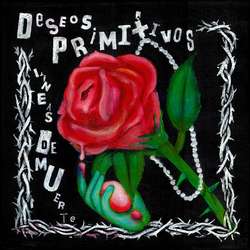Richard "Dick" Proenneke died in 2003 after living alone in the Alaskan wilderness for roughly thirty years. He built his own furniture after constructing a cabin for himself, was attacked by bears, and almost tamed a wolverine. Proenneke's naturalist life and journalistic observations at Twin Lakes is an obvious influence for Men as Trees' third release on Daijoubu Records, as the band uses his quotes throughout the course of the album and dedicates this release to him, their "hero." Weltschmerz (pronounced "velt-shmerts"), is a German word that means "a feeling of melancholy or world-weariness," but I've felt no sort of sorrow after listening to the album numerous times. In fact, when I saw Men as Trees play the Bullet Fest in Baltimore, I don't think one person in the room was sad to hear what was to be heard.
Men as Trees play a blend of screamo and ambient instrumental music. Their lighter side, which opens most songs and gives them their length, has an air of Explosions in the Sky. For instance, "Germinal" starts with eight-and-a-half minutes of instrumental guitar banter before transforming into the progeny of La Quiete and Yaphet Kotto. If you aren't familiar with these bands, think of melody blended with intensity where one is never sacrificed for the other.
"If There Was Any Wisdom Left They Would Send It Back Up the Mountain" contains wandering instrumentals reminiscent of City of Caterpillar after nearly two minutes of La Quiete-esque foreplay. "Good Luck to You" features a Proenneke quote while what one could call an interlude plays in the background. "Dead on the Bank," an interlude on acoustic guitar, also has Dick Proenneke's words from something that sounds like a journal of his secluded life.
"Swa Cwæð Eardstapa," a title in Old English, is easily the best - and longest - song on Weltschmerz. I remember the performance of this song quite well. It was impossible, in the low-ceiling, wood-paneled downstairs of the Charm City Art Space, to not be taken aback by the beauty of the song and join in with the howled gang-vocals at the end. The band lays bricks, one by one. Once a wall is built, they knock it down and start from scratch with a different medium, making it even taller than it was before; honestly, this is the best way I can describe the track. This song ends the album with Proenneke's words, "Too many men work on parts of things. Doing a job to completion satisfies need." In a way, this quote is a testament to the band's DIY ethic, something Proenneke himself embodied when he built his home from scratch using only hand tools.
Men As Trees have posted a link to download the album for free here. I urge you to take advantage of their generosity.



